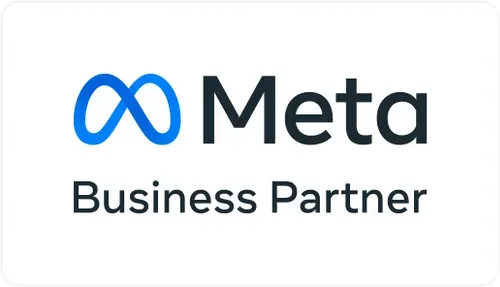Eid Influencer Collaboration Dos and Don'ts: Maximizing Impact and Authenticity
- Apr 04, 2024
In the world of digital marketing, influencer collaborations have become a cornerstone for brands looking to engage with their target audience authentically. As Eid approaches, a significant cultural and religious celebration for Muslims worldwide, brands have a unique opportunity to leverage influencer partnerships to connect with this audience. However, to ensure the success of such collaborations, it’s essential to navigate them with care, sensitivity, and authenticity. Here are some dos and don’ts for maximizing impact and authenticity in Eid influencer collaborations:
Crucial Dos for Effective Collaboration
1. Cultural Sensitivity: Understand the significance of Eid in Muslim culture. Take the time to educate yourself and your team about the traditions, customs, and values associated with this celebration. This cultural awareness will guide your approach and help you create content that resonates with the audience.
2. Partner with Relevant Influencers: Look for influencers who are not only popular but also have a genuine connection with the Eid celebration and Muslim culture. Seek influencers whose content aligns with your brand values and resonates with your target audience.
3. Create Authentic Content: Encourage influencers to create authentic content that reflects their personal experiences and traditions associated with Eid. Authenticity is key to building trust with the audience and ensuring the collaboration feels genuine rather than forced.
4. Highlight Diversity: Eid is celebrated by Muslims from diverse backgrounds and cultures worldwide. Embrace this diversity by collaborating with influencers from different regions, backgrounds, and perspectives. This approach will help you reach a broader audience and foster inclusivity in your marketing efforts.
5. Promote Meaningful Messages: Use the Eid influencer collaboration as an opportunity to promote meaningful messages that resonate with the audience. Whether it’s spreading joy, promoting unity, or giving back to the community, align your brand messaging with the values associated with Eid.
6. Engage in Community Outreach: Beyond the digital realm, consider engaging in community outreach initiatives in partnership with influencers. This could involve sponsoring charity events, organizing food drives, or supporting local community organizations. These efforts demonstrate your commitment to making a positive impact beyond marketing campaigns.
7. Measure Impact and Engagement: Track the performance of your Eid influencer collaborations to measure their impact and engagement. Monitor metrics such as reach, engagement, and sentiment to evaluate the success of your campaigns and identify areas for improvement in future collaborations.
Pitfalls to Avoid
1. Tokenism: Avoid tokenism by treating Eid influencer collaborations as a checkbox exercise. Instead, prioritize authenticity and genuine engagement with the audience. Tokenistic approaches can come across as insincere and may alienate your target audience.
2. Stereotyping: Steer clear of stereotypes and generalizations when creating content for Eid influencer collaborations. Recognize the diversity within the Muslim community and avoid perpetuating clichés or misconceptions in your marketing efforts.
3. Over-commercialization: While collaborations with influencers are inherently promotional, be mindful of over-commercialization. Strike a balance between promoting your brand message and respecting the significance of Eid as a religious and cultural celebration.
4. Ignoring Feedback: Listen to feedback from influencers and the audience regarding your Eid campaigns. Take constructive criticism onboard and use it to refine your approach in future collaborations. Ignoring feedback can hinder your ability to connect authentically with the audience.
5. Lack of Cultural Context: Ensure that your Eid influencer collaborations are culturally sensitive and contextually appropriate. Avoid cultural appropriation or insensitive references that may offend or alienate the audience.
6. Exclusivity: Eid is a time of celebration and inclusivity. Avoid creating content that feels exclusive or alienating to those who may not celebrate Eid. Instead, focus on promoting unity, compassion, and inclusivity messages that resonate with a diverse audience.
7. Forgetting the Purpose: Ultimately, the purpose of Eid influencer collaborations should extend beyond marketing objectives. While driving brand awareness and engagement is important, remember to prioritize building genuine connections with the audience and contributing positively to the community.
Eid influencer collaborations offer brands an invaluable opportunity to authentically engage with the Muslim community and amplify their message during this significant occasion. By adhering to the dos and don’ts outlined in this guide, brands can effectively maximize the impact of their collaborations while nurturing authenticity, respect, and inclusivity.
For brands seeking to navigate Eid influencer collaborations with finesse, Evolve Digitas stands as a strategic partner poised to elevate your efforts. With our expertise in digital marketing and cultural insights, we can help you craft compelling influencer campaigns that resonate deeply with the Muslim audience. Whether you’re aiming to promote products, spread meaningful messages, or simply celebrate the spirit of Eid, our collaborative approach ensures that your influencer campaigns are aligned with your brand values and resonate authentically with your target audience. Let Evolve Digitas be your trusted partner in navigating Eid influencer collaborations with sincerity, cultural sensitivity, and impactful results. Together, we can create campaigns that not only amplify your brand message but also foster a sense of unity and celebration within the Muslim community.
Popular Posts
-
 How to Balance Innovation with Data Privacy Compliance07 Apr 2025
How to Balance Innovation with Data Privacy Compliance07 Apr 2025 -
 The Rise of Zero Trust Security in Digital-First Enterprises04 Apr 2025
The Rise of Zero Trust Security in Digital-First Enterprises04 Apr 2025 -
 Automating Workflows: The Key to Future-Proofing Your Business02 Apr 2025
Automating Workflows: The Key to Future-Proofing Your Business02 Apr 2025 -
 The Ethical Challenges of AI in Digital Transformation: Navigating Bias, Privacy, and Transparency04 Mar 2025
The Ethical Challenges of AI in Digital Transformation: Navigating Bias, Privacy, and Transparency04 Mar 2025






